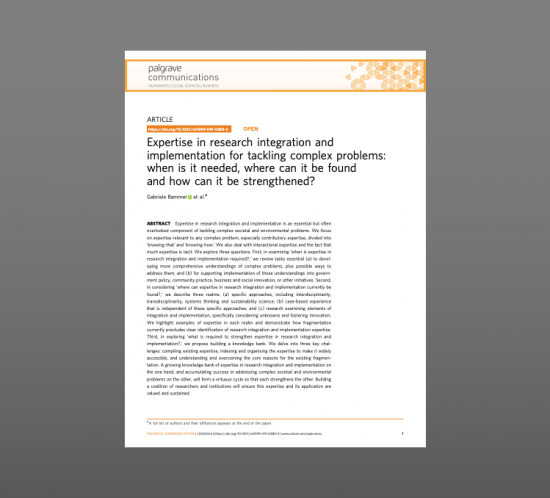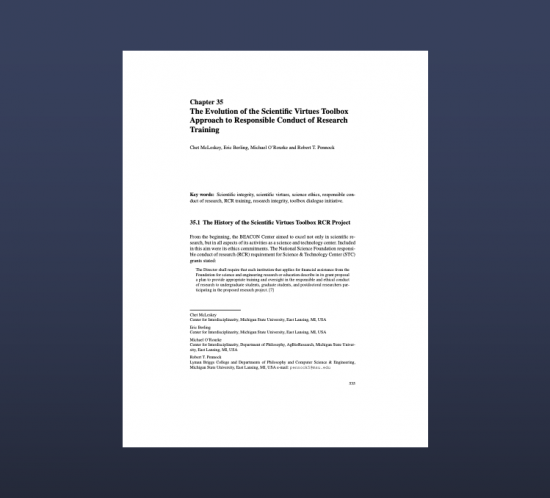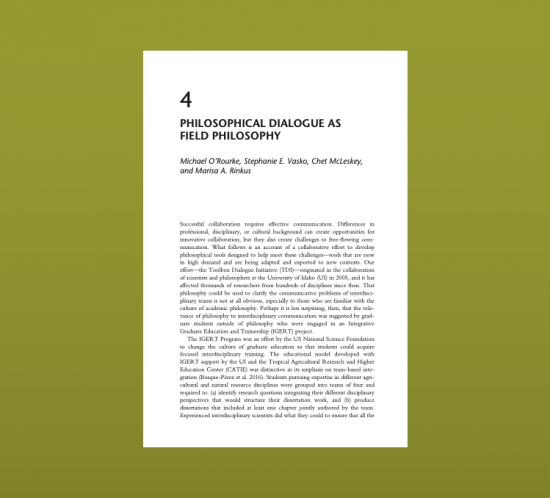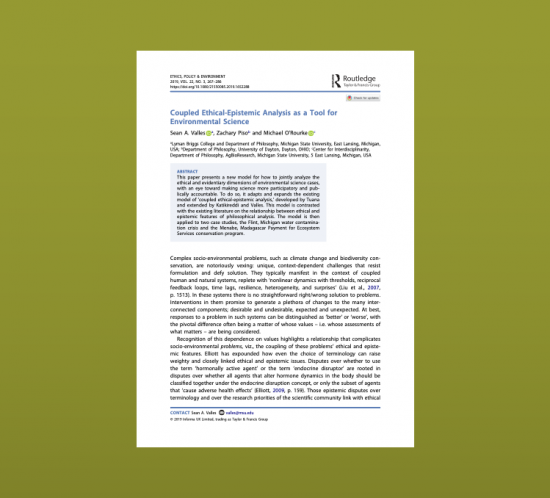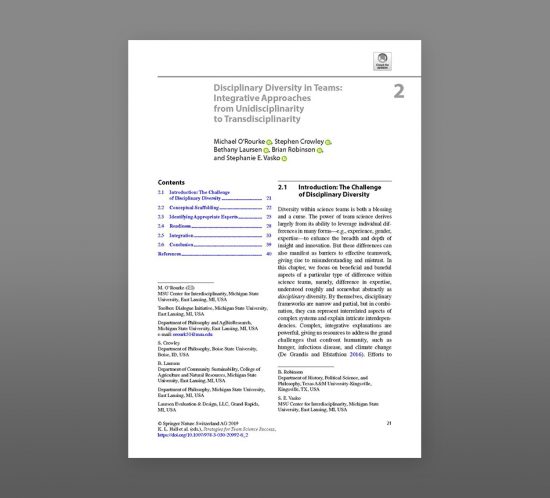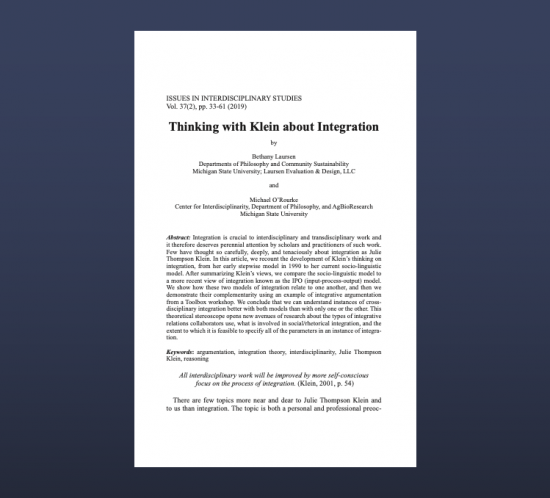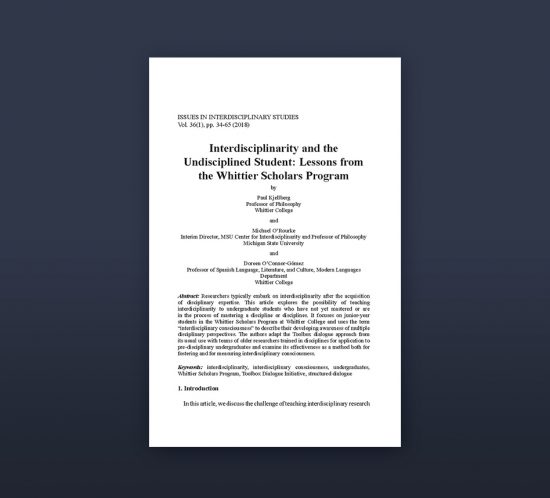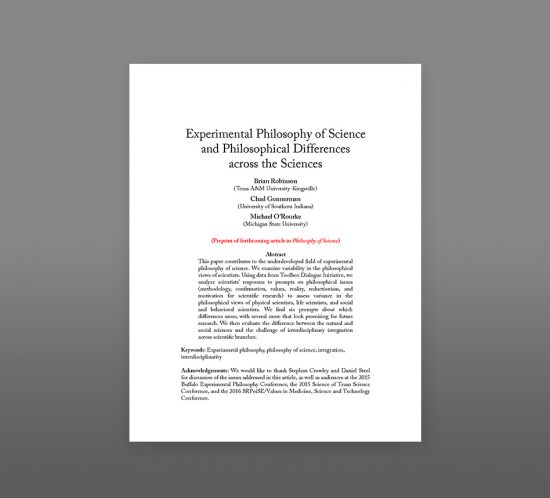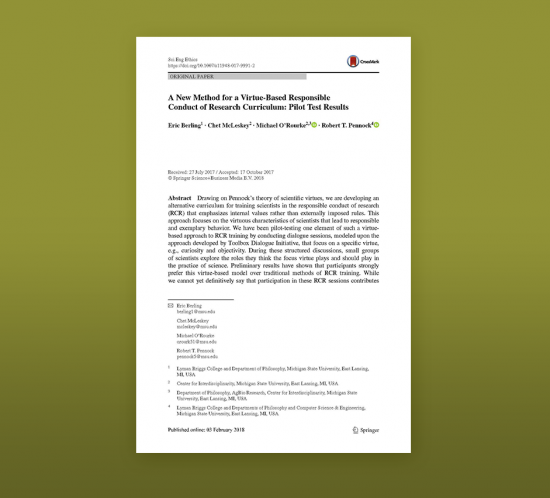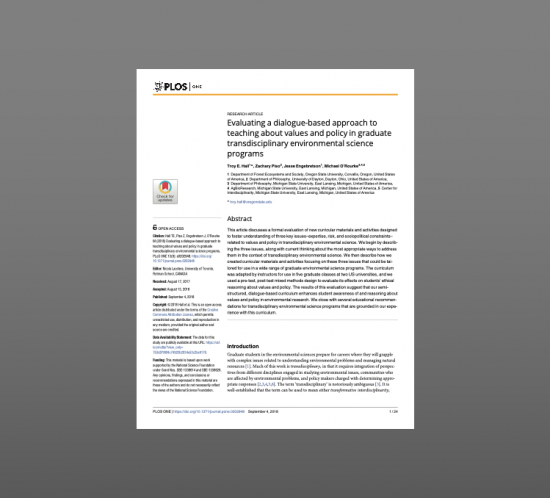Expertise in research integration and implementation for tackling complex problems: When is it needed, where can it be found and how can it be strengthened?
Expertise in research integration and implementation is an essential but often overlooked component of tackling complex societal and environmental problems. We focus on expertise relevant to any complex problem, especially contributory expertise, divided into ‘knowing-that’ and ‘knowing-how.’ We also deal with interactional expertise and the




